Meet the Zooplankton Team
Zooplankton are tiny animals that live in the sea—from the very small microzooplankton such as ciliates to the larger copepods and euphausiids (krill). The zooplankton group will be studying how the changing sea ice affects the plankton food web—zooplankton and what they eat. They’ll use nets to collect zooplankton, the conductivity-temperature-depth rosette (CTD) to measure physical properties of the water, an underwater microscope, and onboard incubators to grow zooplankton and run experiments on them.
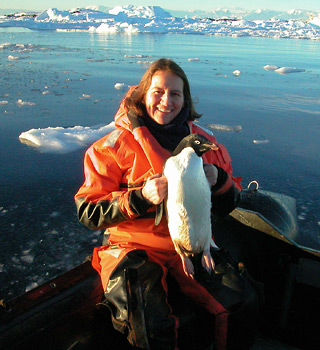 Carin Ashjian,
Carin Ashjian,
Chief Scientist,
Woods Hole Oceanographic Institution
What is your role in the expedition?
I am the chief scientist. I work together with the crew of the ship and the scientists to plan our daily activities and the overall cruise plan. I need to make sure that every project on board is successful.
Why did you choose science as a career?
Because it is so interesting. It is a lot of fun to collect data and put it together to figure out how things work.
Where did you grow up?
I grew up in Massachusetts.
What were your favorite and least favorite things about high school/college?
I was not very fond of rote memorization. I always enjoyed the beginning of a term or a year. Figuring out what I could take and the anticipation of starting the new courses was always a high point.
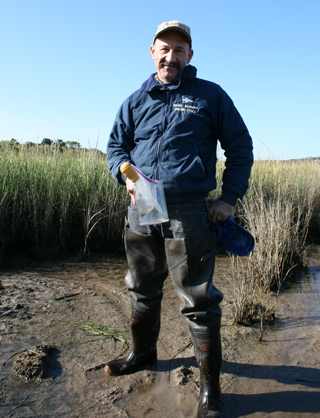 Philip Alatalo
Philip Alatalo
Technician
Woods Hole Oceanographic Institution
What is your role in the expedition?
My job is to assist Carin Ashjian (the chief scientist) and Bob Campbell. Together with Celia Gelfman, we will use nets to collect zooplankton, which we will use in experiments to see how much food and what kind of food copeods and krill are eating, and in the case of females, how many eggs they can produce. I am also in charge of the VPR (Video Plankton Recorder), which is an instrument that acts as an underwater microscope, taking pictures of animals, plants, and particles....all of them microscopic in size. We also help the other groups who are working with nets out 'on deck', because it can get pretty cold out on the fantail!
Why did you choose science as a career?
I've always been a nut about Nature: rocks, fossils, butterflies, beetles, stars, plants. Close to graduation, I realized that there weren't many jobs for a paleontologist. A senior project in college introduced me to the Nahant Lab on the coast of Massachusetts, and I fell in love with marine invertebrates.
Where did you grow up?
In a little town west of Boston, called Maynard. Once a busy mill town, it eventually became the headquarters of Digital Equipment Corporation, one of the early makers of computers....now it is once more just a little town west of Boston.
What were your favorite and least favorite things about high school/college?
I didn't realize it at the time, but small-sized classes in high school were great and having hundreds of people in one class in college was not fun! To use a marine analogy, I was a big fish in a small sea, in high school! I nearly drowned in the large college setting, until I resolved to evolve into a good student (sorry, yesterday was Darwin's 200th birthday). One of my favorite things in college was taking all sorts of interesting courses once I had satisfied all the academic requirements for Biology: I took classes in art, German, economics, and....Marine Biology!
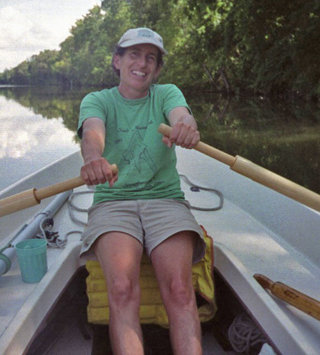 Celia Gelfman
Celia Gelfman
Technician
University of Rhode Island
What is your role in the expedition?
I'm part of the zooplankton team. I've been working with samples from the
Arctic for the past five years. This is my first chance to help collect
them and I'm very happy that I will finally get to see where these beasts
come from.
Why did you choose science as a career?
I never really chose science, I just kept doing it because I like it. A summer in a marine biology lab led to a job after college and so on.
Where did you grow up?
Ridgefield, Ct. We spent part of each summer in either Chatham, Massachusetts or on Lake Michigan following my dad as he poked around with a net and bucket trailing kids as he explored.
What were your favorite and least favorite things about high school/college?
One of my least favorite things in college was dissecting a mink, luckily it was already clear there was more to biology than that. A summer marine science class on Appledore Island (a joint program of UNH and Cornell) was a huge treat.
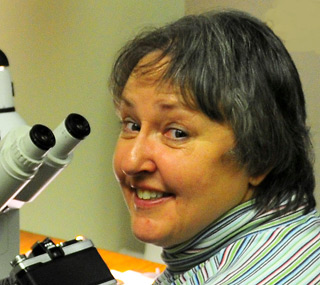 Celia Ross
Celia Ross
Technician
Oregon State University
What is your role in the expedition?
I am working in conjunction with Carin Ashjian and Bob Campbell looking at the role of grazing by microzooplankton and macrozooplankton in the Bering Sea. My contribution, and favorite part of our research, is focused on the use of a microscope and digitizing program to identify and measure the microzooplankton we have collected.
Why did you choose science as a career?
Mostly, I was driven by curiosity.
Where did you grow up?
I grew up in Port Angeles, located on the Olympic Peninsula of Washington State.
What were your favorite and least favorite things about high school/college?
Unlike a lot of people, I did not go to college right out of high school, but waited until I was in my mid-forties. I had a pretty good idea I wanted a career in some field of science, I just had trouble deciding in which field until I took a marine invertebrate physiology class and never looked back.
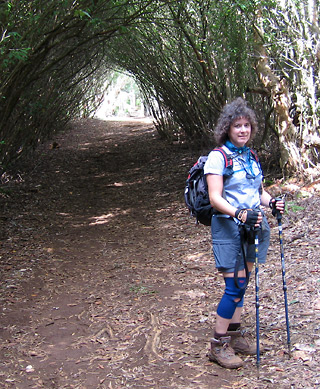 Julie Arrington
Julie Arrington
Technician
Oregon State University
What is your role in the expedition?
I will be working with Celia Ross, Carin Ashjian and Bob Campbell on grazing experiments. We will be growing cells in onboard incubators. We will measure chlorophyll at sea and prepare samples for analysis by flow cytometry and microscopy at home.
Why did you choose science as a career?
I find it exciting to figure out how life works, how the world works. Science satisfies my curiosity, my desire to answer the questions “Why?” and “How?” I also enjoy working with technology. Growing up in Oklahoma, I always knew that I wanted to go into science, but I had never heard of oceanography. I earned a bachelor’s degree in biochemistry, which is the study of the chemistry of life. It wasn’t until I moved to Oregon that I discovered oceanography.
What were your favorite and least favorite things about high school/college?
The best thing about high school was the great group of friends I had. We took most of our classes together and were in the marching band. I was busy with classwork and various extracurricular activities. It was a stimulating time. The hardest thing about college was trying to find a place for myself like I had in high school while in a huge university. I wish I had gone to a smaller university.
I am extremely lucky in my choice of career because my 46 cruises have taken me all around the world. This project is my third visit to the Arctic. I have been to Antarctica nine times. I met some of the scientists that I’m sailing with now on those trips. The beauty and power of the ocean never fail to amaze me.
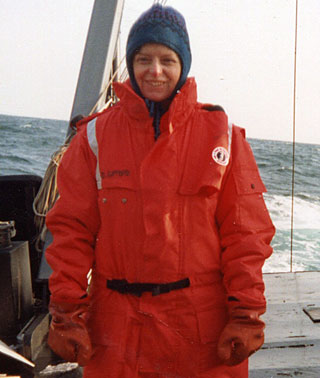 Donna Van Keuren
Donna Van Keuren
Technician
University of Rhode Island
What is your role in the expedition?
I am a lab technician from the Graduate School of Oceanography at the University of Rhode Island. I will be working with Carin Ashjian (WHOI), Bob Campbell (URI), Phil Alitello (WHOI) and Celia Gelfman (URI) to conduct experiments with Bering Sea copepods and to measure zooplankton and phytoplankton abundance.
Why did you choose science as a career?
As a child I always liked being outdoors, collecting various creatures to keep as pets, or to just look at for awhile. I grew up in Darien, Connecticut, and spent lots of time at the beach, even in the winter! One day when I was about ten years old we took our cat to the veterinarian. He had ear mites, and was scratching his ears. The doctor showed me some of the mites under his microscope...and that was it, that's what I wanted to do, see all those tiny things close up. So I have spent years looking at tiny plants and animals under different types of microscopes, but nothing quite as creepy as those ear mites. It was easy to see why the cat was scratching his ears!
What were your favorite and least favorite things about high school/college?
My favorite things about High School, College, Graduate School and all my working years are all the wonderful people I have learned from and worked with. Finding out new things is exciting and fun, no matter how old you are.


